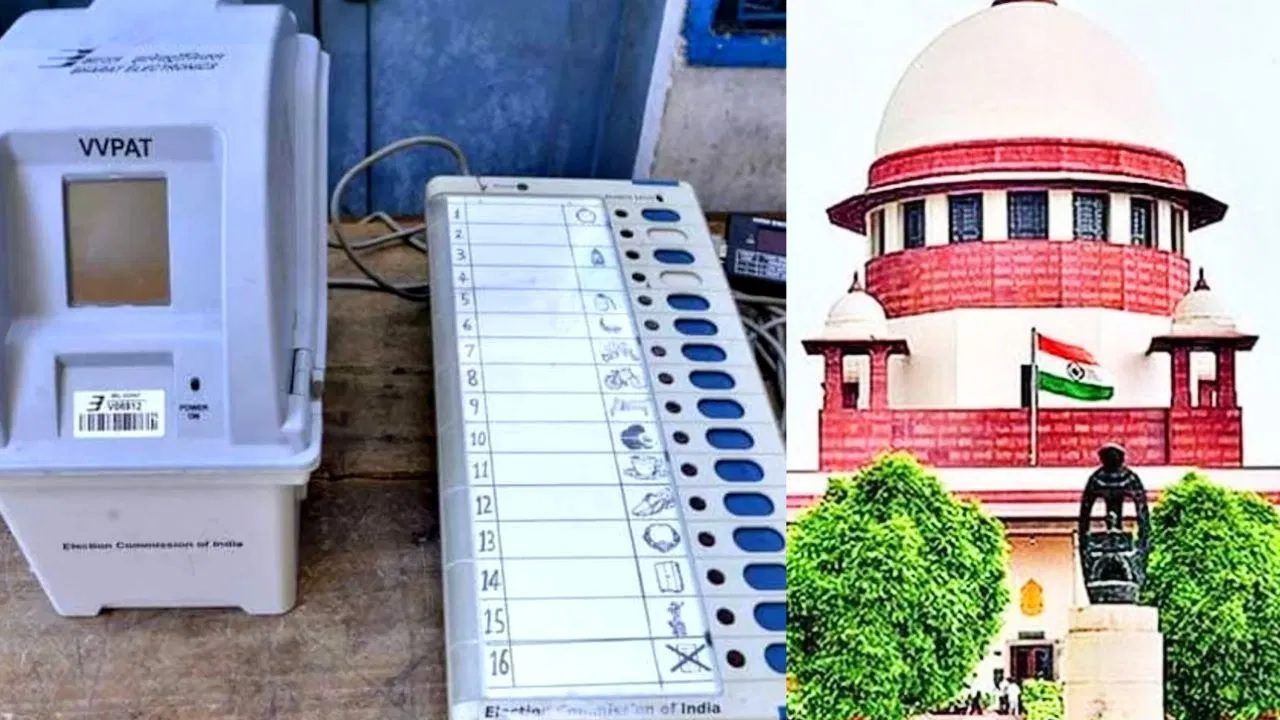The Supreme Court of India has recently delivered a significant verdict, dismissing all petitions that sought 100% verification of votes through Voter Verifiable Paper Audit Trail (VVPAT) slips. Additionally, the court rejected calls for a return to the traditional ballot paper voting system. This decision solidifies the continued use of Electronic Voting Machines (EVMs) in Indian elections, even as debates over their reliability and security persist.

Understanding the Verdict
A two-judge bench comprising Justices Sanjiv Khanna and Dipankar Datta unequivocally rejected the pleas for complete EVM-VVPAT verification. The court’s ruling ensures that the current practice of random verification of VVPAT slips from five electronic voting machines (EVMs) per assembly segment will remain in effect.
Justice Khanna, while delivering the verdict, stated, “We rejected all pleas related to bringing ballot papers again.” This decision comes after a thorough examination of the arguments presented by various parties, including the Association for Democratic Reforms (ADR), Abhay Bhakchand Chhajed, and Arun Kumar Aggarwal.
The Court’s Directions to the Election Commission
During the hearing, the Supreme Court issued specific directions to the Election Commission of India (ECI):
- Sealing of Symbol Loading Units (SLUs): After the completion of the symbol loading process, the Symbol Loading Units (SLUs) should be sealed and securely stored for at least 45 days.
- Verification of Burnt Memory in EVMs: A team of engineers must check the burned memory in the microcontroller EVMs after the declaration of election results. Candidates in serial numbers 2 and 3 can request this verification within seven days of the results being declared.
- Exploring Technological Enhancements: Justice Khanna asked the ECI to examine the feasibility of an electronic machine for counting the paper slips. Additionally, the court suggested considering the inclusion of a barcode for each political party alongside their respective symbols on the VVPAT slips.
- Expenses and Trust: The expenses for verifying the EVM program will be borne by the candidates making the request. If any tampering is found, the expenses will be refunded. Justice Datta emphasized that blindly distrusting the system could lead to unwarranted suspicions. He underscored that democracy thrives on trust and collaboration among its pillars.
The Broader Context of Over-EVMs and VVPATs
The debate over EVMs and VVPATs has been ongoing for years. While some argue that the current system ensures efficiency and transparency, others express concerns about vulnerabilities and the need for greater verification. The Supreme Court’s decision reaffirms the EVMs’ role in India’s electoral process, but it also highlights the importance of maintaining public trust in democratic institutions.
As India continues to evolve its electoral mechanisms, striking the right balance between technological advancements and public confidence remains crucial. The court’s verdict sets a precedent for future discussions on electoral reforms and reinforces the significance of informed decision-making in shaping the country’s democratic landscape.
In conclusion, the Supreme Court’s rejection of the petitions for 100% VVPAT verification underscores the need for a robust electoral system—one that combines technological rigor with public trust to uphold the democratic spirit of India.
For More News updates, Follow us on Read Now News
